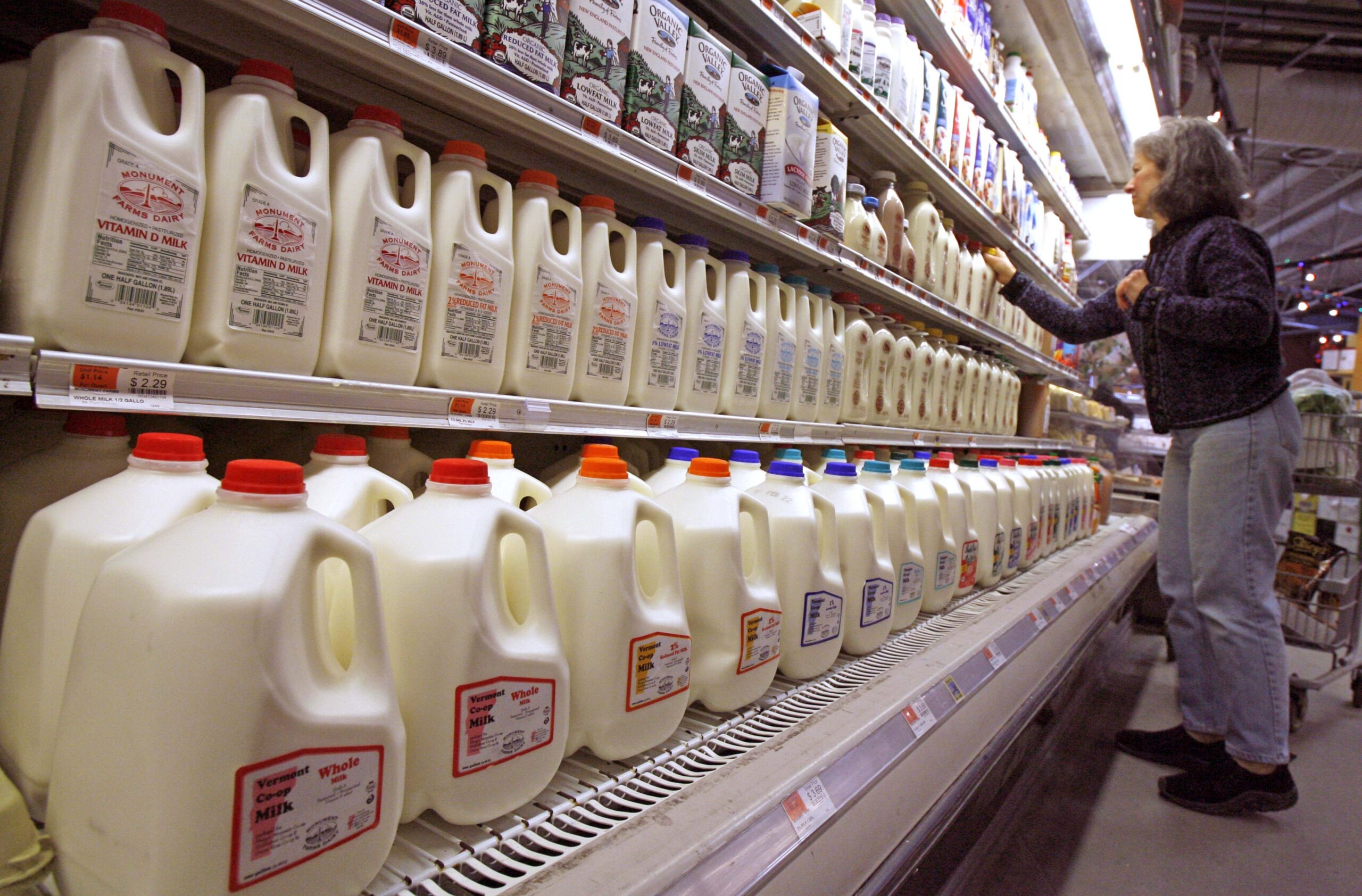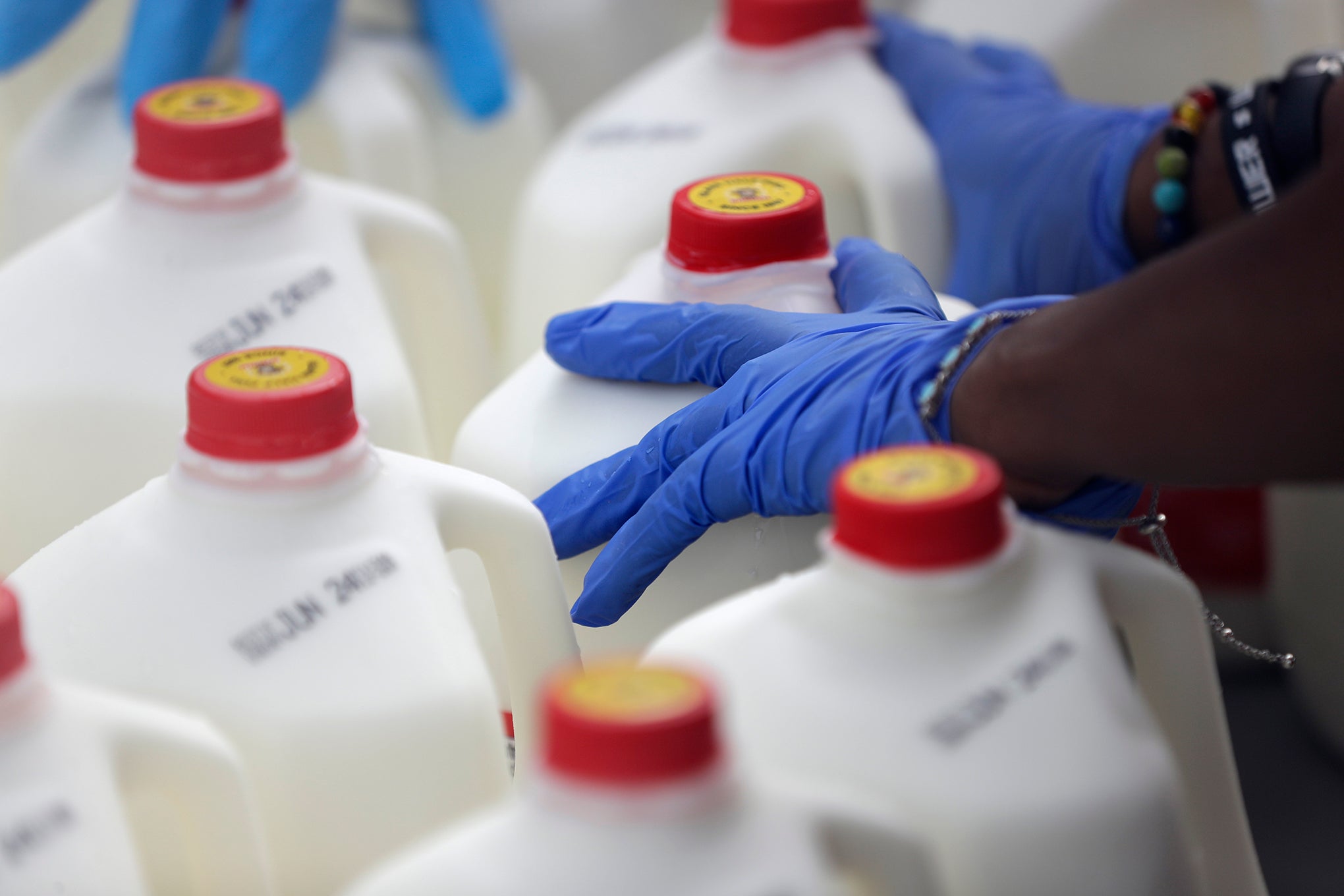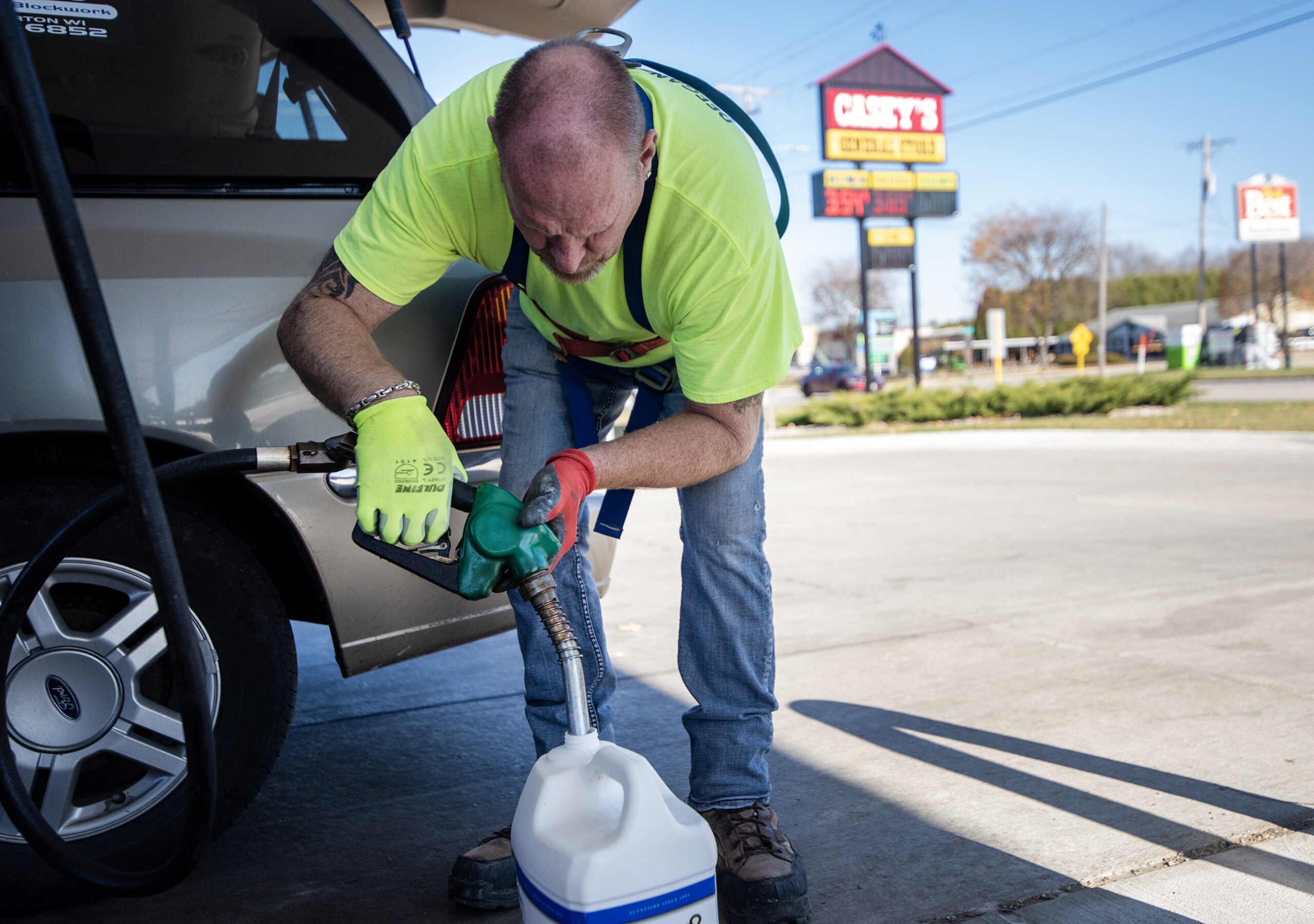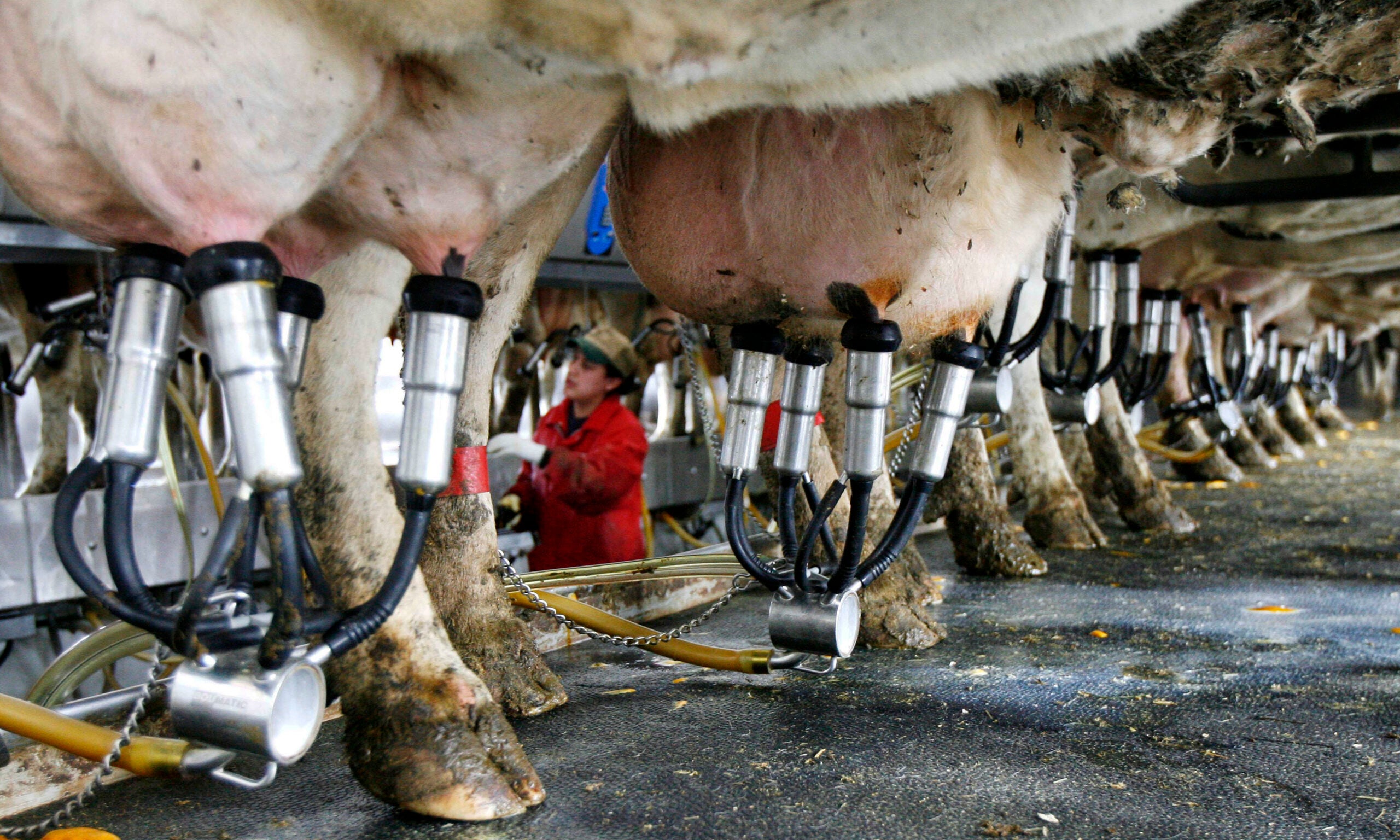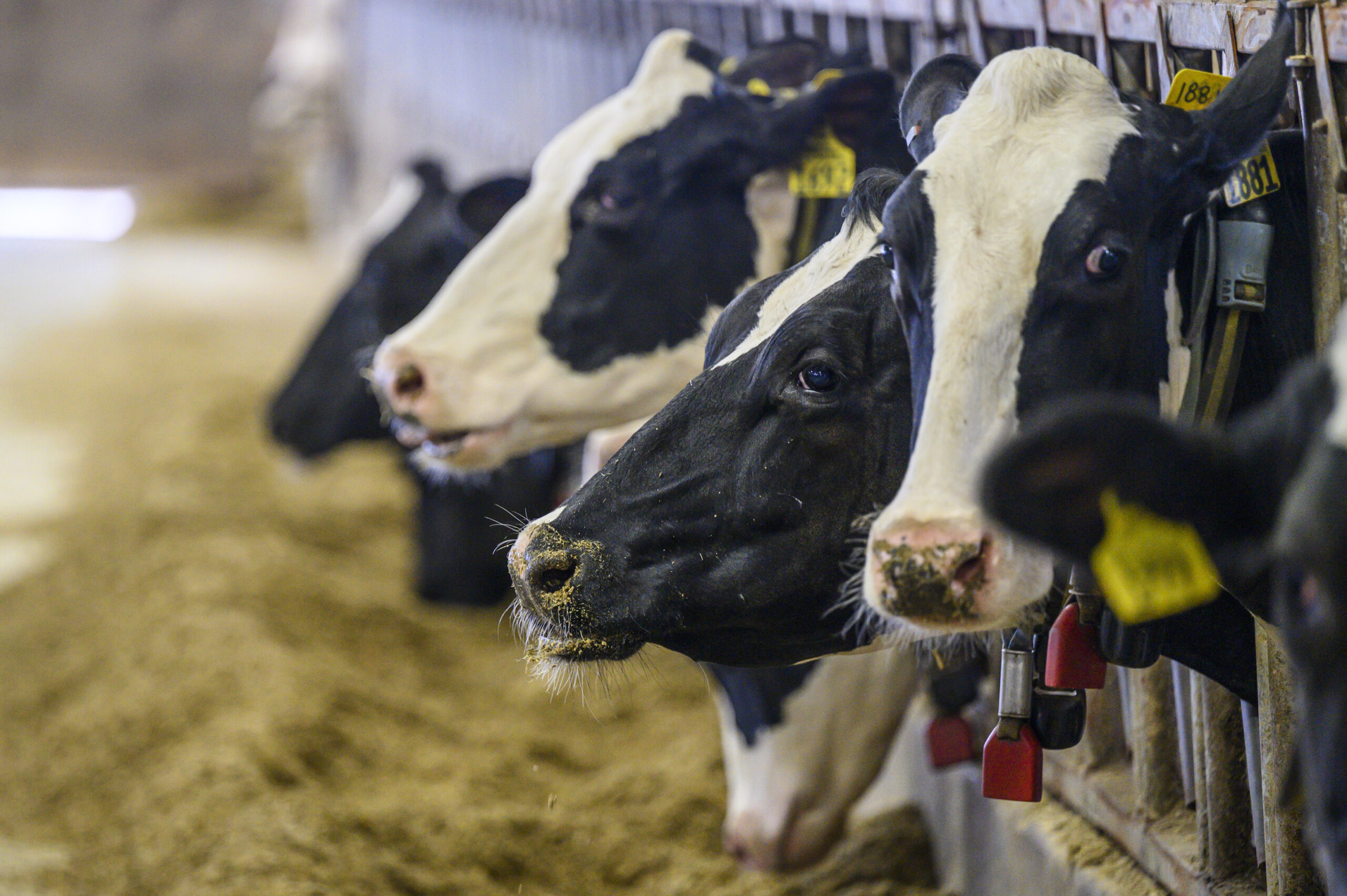Canadian dairy farmers say they aren’t responsible for Wisconsin producers left without a market for their milk.
Last week, Grassland Dairy Products dropped 75 Wisconsin farmers. They said a policy change in Canada left them unable to compete with Canadian producers of ultra-filtered milk.
But Dairy Farmers of Canada says the policy is simply meant to help Canadian producers.
Stay informed on the latest news
Sign up for WPR’s email newsletter.
“We need to be competitive for ourselves and so by implementing Class 7, we’re allowing ourselves to be competitive in the marketplace,” said Ashlee Smith, assistant director of communications for the group.
Smith said Class 7 only applies to ultra-filtered milk, a product that represents less than 1 percent of U.S. exports to Canada.
“It doesn’t make a whole lot of sense from where we sit to say that we’re responsible for damaging somehow the American dairy sector,” Smith said. “The reality of it is there’s just too much milk being produced in the United States.”
And Frank Behling, one of the dairy farmers dropped by Grassland, agrees.
“(Canada is) well within their rights to make food policy changes that benefit their producers,” Behling said.
Behling said overproduction in states like Michigan means Wisconsin processors can bring in milk from out of state for less than money than they pay local farmers.
“I think the solution is in our own backyard and I think it’s up to producers and legislators to come up with it,” Behling said. “I don’t think blaming and doing a trade war with Canada is going to help us out in the short term or in the long term.”
Wisconsin Public Radio, © Copyright 2025, Board of Regents of the University of Wisconsin System and Wisconsin Educational Communications Board.
